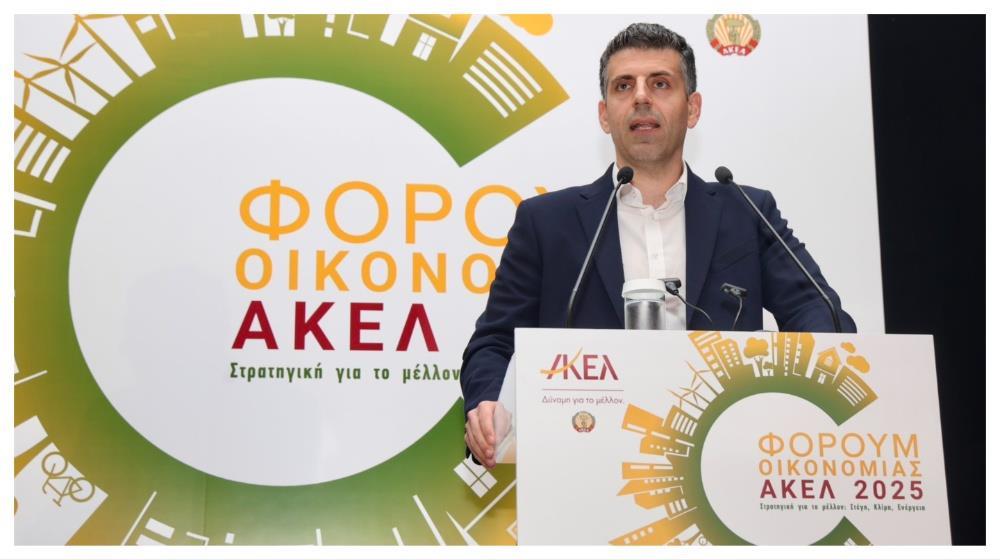The economic course of Cyprus and the challenges that shape its future were at the center of the speech by AKEL's Economic Policy Department Head, Charis Polykarpou, at the opening of the AKEL Economic Forum 2025.
With the central thematic axis 'Strategy for the Future: Housing, Climate, Energy', Polykarpou raised the need for an economic direction that is not limited to numbers but extends to the real needs of society, the productive base and the place itself.
Looking back to 2019, when AKEL organised the first Economic Forum, Charis Polykarpou recalled that at that time there was a prevailing distrust from a significant part of the political system and the economic community. Many viewed with irony the idea that AKEL had a say and a role in the discussion on the economy, he argued. “What does AKEL know about economics?” was the easy criticism at the time, according to him.
Today, as he noted, the very presence of representatives from institutions, businesses, organisations, the diplomatic corps, local government and social actors refutes this narrative. The participation of such a wide range of personalities from the Cypriot economy confirms that AKEL not only has a point of view, positions and a documented plan, but also the courage to open a dialogue with all the key actors, whether they agree or disagree with it.
AKEL, as he said, had subsequently in the past pointed out the dangers in a timely manner, confirming afterwards that its positions were not only timely, but also correct.
Looking at the past years as a whole, the Head of the Economy Sector noted that the very development of events in the country demonstrates that AKEL functions as a "provider", warning in a timely manner and proposing applicable solutions. As he said, the party's positions and proposals have proven to be realistic, effective and necessary for the country's economic course and the enhancement of the living standards of citizens.
Moving on to the present, he referred to the importance of a dialectical approach that examines not only what has been achieved, but also what weaknesses the current economic and development model presents. He pointed out that the issues of housing, climate and energy do not just concern the current generation, but directly affect the future of the country and its children.
The main point of his position was the need for an economic strategy that is not limited to the logic of "prosperity of indicators", but takes into account social cohesion, quality of life and balanced development. As he said, "fiscal surpluses and positive development indicators are not enough when at the same time social deficits and income inequalities are deepening. Announcements are not enough when infrastructure projects collapse or when necessary reforms are delayed. Good intentions are not enough when the implementation of policy reproduces the old, reinforcing entanglement and stagnation. An economy that grows is not enough when this is done at the expense of the environment and when natural resources are depleted".
He emphasised that growth that creates super-profits for a few is unsustainable, while workers, small family businesses and the self-employed see their hard work devalued and the wealth produced concentrated in fewer and fewer hands. He described an economic model where social infrastructure is inadequate, leaving the most vulnerable in particular to feel that tomorrow will be worse than today.
Concluding his speech, Polykarpou emphasised that it is not enough to discuss today without a plan for tomorrow, in the economy, in society and in the effort to reunify the country.
(Source: InBusinessNews)









